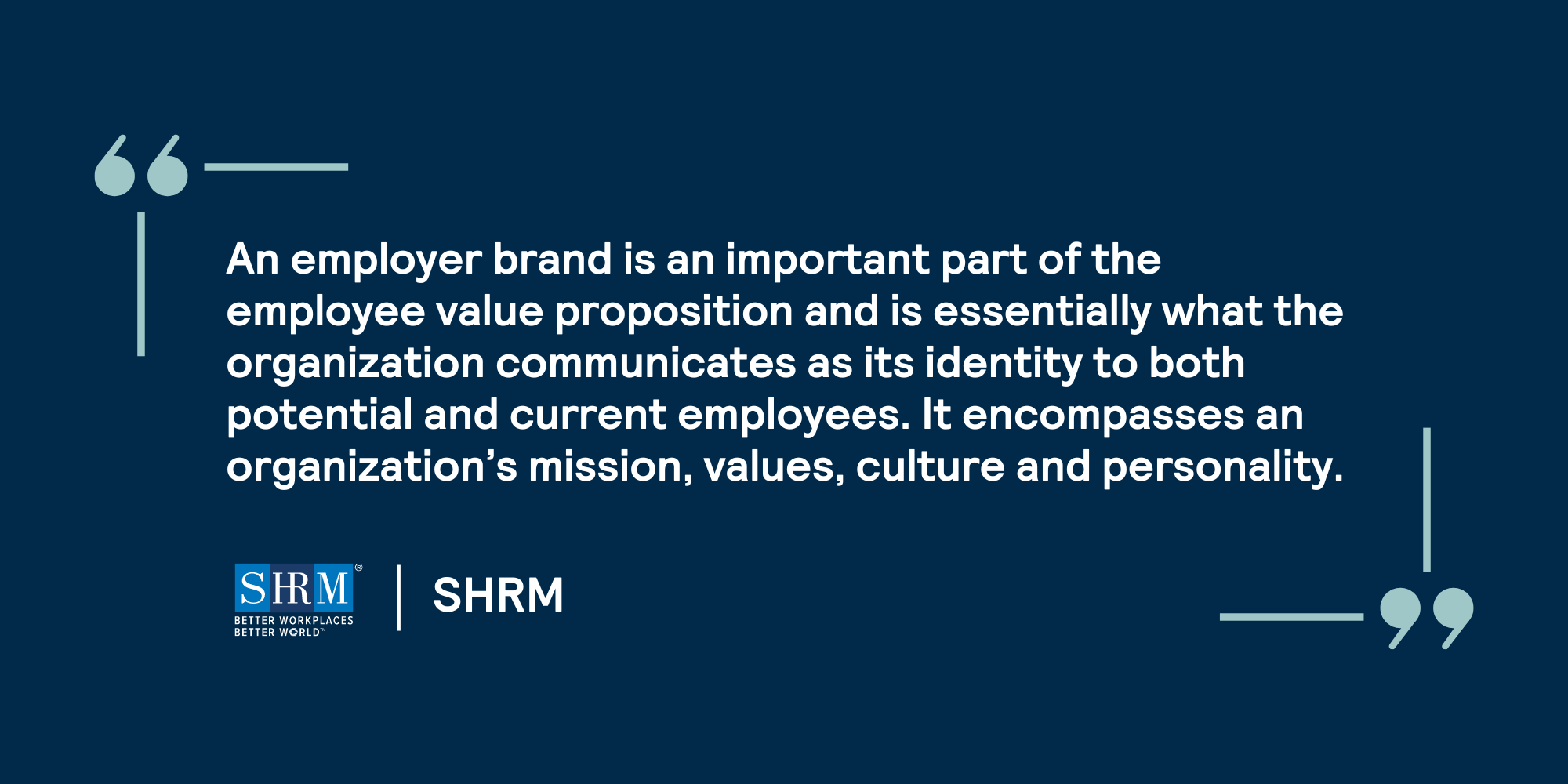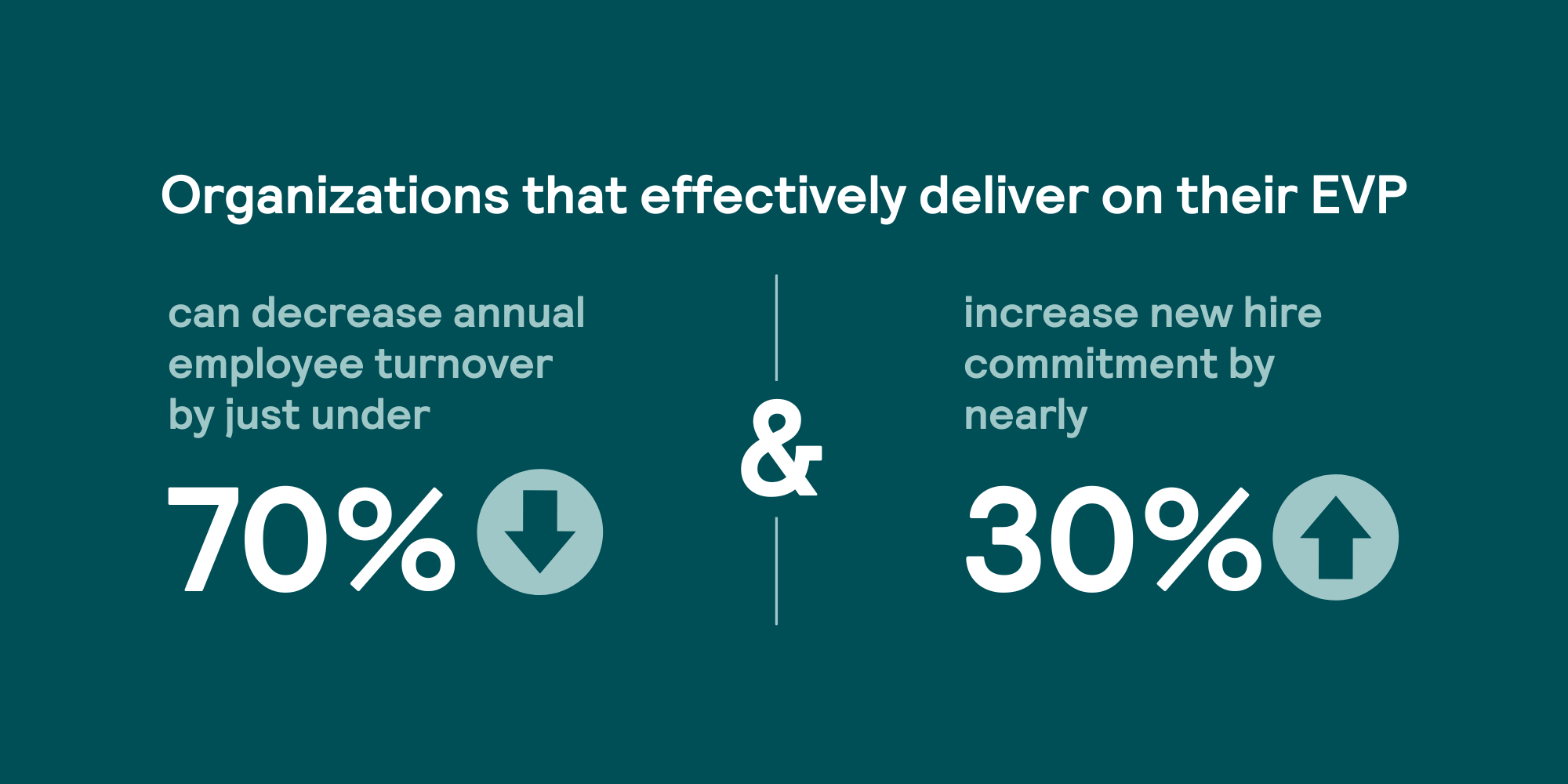Employer branding, employee value proposition…we use these terms a lot, often interchangeably, but can we really define the difference between the two and how they are related (without cheating and Googling)? We can, and we’ll do that right now.
Your employer brand is the perception of your company by job seekers and employees. It’s how you market your company to candidates and what you build upon to retain top talent. It helps your company differentiate what you offer in the labor market to recruit, retain and engage the talent you need to be successful.
Your employee value proposition (EVP) is the set of benefits you offer employees in return for the skills, experience and qualities they bring to the position.
They do sound similar and even branding experts sometimes conflate the two. However, putting your employer brand and EVP in the same bin is where there is a common disconnect between brand and recruiting for that brand. So don’t get it twisted... here’s
the difference.
The Difference Between Employer Brand and Employee Value Proposition
SHRM says that “an employer brand is an important part of the employee value proposition and is essentially what the organization communicates as its identity to both potential and current employees. It encompasses an organization’s mission, values, culture and personality.”

Think about employer branding as a promise that gets delivered through your EVP. If your employer brand is a promise, your EVP is how you keep that promise.
This matters because a disconnect between the two means that you’re not actually delivering on your brand’s promise. To compete effectively in today's talent-driven market you have to talk about “why” candidates should come work with your company, not what your company expects from candidates. You cannot let your company’s expectations for your employees lead the conversation.
Your EVP is not what your recruiting team or senior leadership wants, but how your employees perceive your company’s value and what resonates with them. It’s important to find the right balance between supporting company expectations and what candidates want from your company.
If your EVP is distilled from what company leadership wants, it becomes aspirational. We all have high aspirations, but your EVP should not be about what you expect your organization to become. Your EVP is employee-driven and should include statements that reflect what your current employees believe your company offers then. A strong EVP provides a compelling (but realistic) view of the benefits of joining your organization while also showcasing the values and connections that encourage employees to stay.
Want to Know What Your EVP is? Ask Your Employees
Creating an EVP that reflects the employee values of your workplace means starting internally. How is your company morale? Honestly, how is it? If your EVP talks about how much your employees love working for your organization and why, but your current employees would roll their eyes at the statement, you have two options (and you better act fast):
- Rewrite your EVP
- Focus on improving value for your current employees before you start marketing a value proposition to potential employees.
Because if your EVP doesn’t line up with what your employees view it as they may decide to take matters into their own hands by writing a brutally honest review and make matters worse. If you won’t be honest, they certainly will. So take it from someone who knows and don’t just talk the talk, walk the walk!
According to research from Gartner, “Organizations that effectively deliver on their EVP can decrease annual employee turnover by just under 70% and increase new hire commitment by nearly 30%.” Leading your recruitment efforts with your EVP can be the key to hiring employees who will be more loyal and likely to remain with your company longer because your EVP speaks to them. The EVP deal a company has with its employees can also be the very thing that differentiates it from its competition.

Your EVP not only serves as a framework for your employer branding efforts, it should also lead those efforts by communicating what your company offers in an employee-centered way. Your EVP speaks to who you are as an employer through your employees, and your employer brand translates that message to your external talent market.
The most important question to ask when creating your company’s EVP is “what do we currently offer to our employees in exchange for their time and effort?” To be clear, you’re asking your current employees this question, either through surveys, focus groups, or – you know, just talking to them. What your employees love about your company (and what they wish you did) is the most effective way to ensure that your EVP delivers on the promise that your employer brand makes.
